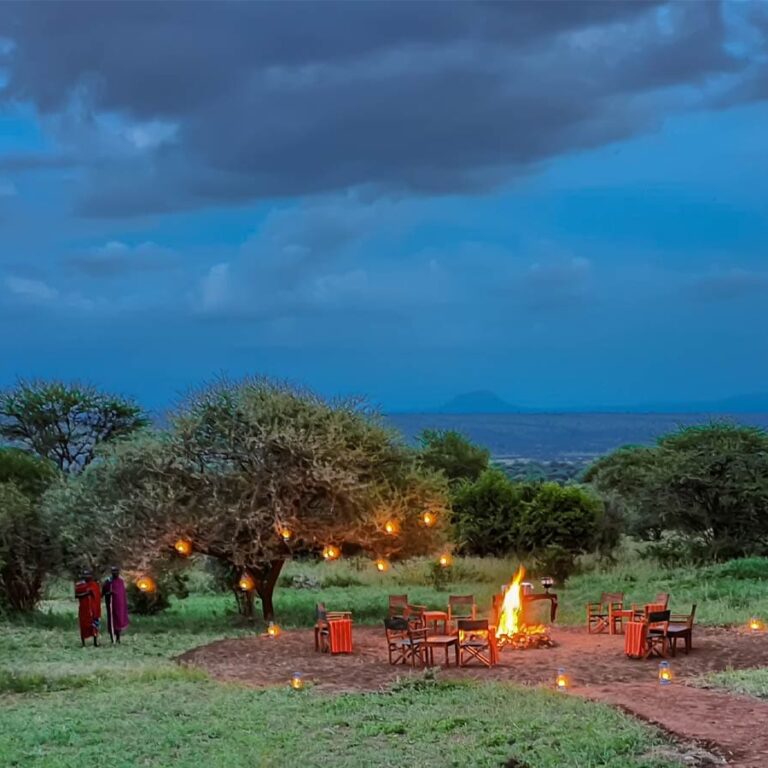An African safari is a bucket-list experience for many nature lovers, offering a unique opportunity to witness exotic wildlife in their natural habitats. While the thrill of seeing the Big Five—lion, leopard, rhinoceros, elephant, and Cape buffalo—can be captivating, it’s essential to approach this adventure with sustainability in mind.
The call of the wild, the rustle of the savanna grass, the unforgettable sight of a lion in its domain – an African safari stirs a primal longing within us responsible travel – holidays | environment | local people. It’s a journey into the heart of nature’s grandeur, a chance to witness ecosystems teeming with life. However, this privilege comes with a profound responsibility: to tread lightly and ensure that our exploration doesn’t compromise the very wonders we seek to behold. Embracing sustainable travel practices is not just an ethical choice; it’s the key to preserving these magnificent landscapes and their inhabitants for generations to come. Let’s delve into practical ways to make your African safari a journey of conscious exploration. Here are some of the best sustainable travel tips for your African safari.
1. Fly Less, Stay Longer: Slowing Down for Sustainability
The journey to the African plains often involves long-haul flights, a significant contributor to your carbon footprint. Embracing the philosophy of “fly less, stay longer” can make a substantial difference. Instead of multiple short trips, consider a more extended stay in one or two regions. This not only reduces your air travel emissions but also allows for a deeper immersion into the local environment and culture. Slowing down your pace enables you to truly appreciate the nuances of the landscape. The rhythms of wildlife and the stories of the communities you encounter. Consider combining your safari with other enriching experiences within the same country or neighboring regions, minimizing the need for additional flights. Check out this How to Book a Sustainable African Safari: Ultimate Guide.
2. Use Efficient Means of Transportation: Choosing Wisely on the Ground
Once you arrive in Africa, the choices you make regarding transportation within your destination also impact sustainability. Opt for tour operators who utilize well-maintained, fuel-efficient vehicles. Inquire about their vehicle maintenance schedules and their commitment to minimizing emissions. Where feasible, consider incorporating more eco-friendly modes of transport into your itinerary. Walking safaris, as we’ll discuss later, offer an intimate and emission-free way to experience the bush best sustainable travel tips for an African safari. Some lodges and reserves also offer bicycle tours. Allowing you to explore the surroundings at a slower pace and with a zero carbon footprint. When transfers between locations are necessary, explore options like shared shuttles or smaller, more efficient vehicles.
3. Step Off the Safari Vehicle: Embracing Immersive Exploration
While game drives are a quintessential part of the safari experience, venturing beyond the vehicle can offer a more profound and sustainable connection with the environment. Walking safaris, led by experienced and often armed guides, provide an opportunity to engage with the smaller details of the ecosystem – the tracks in the dust, the intricate insect life, the medicinal properties of plants. This low-impact activity minimizes disturbance to wildlife and their habitats while offering a unique perspective. Canoe or boat safaris along rivers and lakes provide another quiet and sustainable way to observe wildlife. Allowing you to approach animals without the noise of an engine. Consider incorporating these alternative activities into your itinerary for a richer and more eco-conscious adventure.
4. Pack Thoughtfully: Minimizing Your Footprint Through Your Luggage
The choices you make when packing can have a ripple effect on sustainability. Prioritize reusable items to minimize waste. Bring a durable reusable water bottle that you can refill, reducing the need for single-use plastic bottles. Pack reusable shopping bags for any souvenirs or purchases you make. Best sustainable travel tips for an African safari. Consider bringing your own reusable cutlery and food containers. Especially if you plan on self-catering or picnicking. Opt for biodegradable toiletries and reef-safe sunscreen to avoid introducing harmful chemicals into the environment. Packing light not only reduces fuel consumption during transportation but also encourages you to be more mindful of your consumption habits. Choose clothing made from natural and sustainable materials that are versatile and require less washing.
5. Choose Eco-Friendly Lodges and Tours: Supporting Sustainable Operations
Your choice of accommodation and tour operator is paramount in ensuring a sustainable safari. Seek out eco-lodges and camps that are committed to minimizing their environmental impact. Look for certifications or clearly stated sustainability practices, such as the use of renewable energy sources like solar power, efficient water management systems, waste reduction and recycling programs, and locally sourced food. Inquire about their involvement in conservation initiatives and their support for local communities. Similarly, choose tour operators who adhere to ethical wildlife viewing guidelines, ensuring that they maintain a respectful distance from animals, avoid disturbing their natural behaviors, and contribute to conservation efforts through partnerships with local organizations or direct funding.
6. Stay in a Private Conservancy or Reserve: Contributing Directly to Conservation
Private conservancies and reserves often play a crucial role in wildlife conservation and community empowerment best sustainable travel tips for an African safari. By choosing to stay within these areas, your tourism fees directly contribute to the protection of the land and its wildlife, as well as supporting local communities through employment and conservation projects. These areas often have lower visitor densities compared to national parks, offering a more exclusive and less impactful safari experience. They may also offer unique activities like night drives and guided walks that are not permitted in national parks, providing a more immersive connection with the environment.
7. Choose Eco-Friendly Tour Operators: Partnering with Responsible Guides
The tour operator you choose acts as a crucial link between you and the environment and the communities you visit. Select operators who prioritize sustainability in all aspects of their operations. Look for those who employ local guides, ensuring that tourism benefits the community directly and provides authentic cultural insights. Inquire about their environmental policies, their commitment to fair labor practices, and their involvement in conservation projects. A responsible tour operator will educate you on sustainable practices during your safari and ensure that your interactions with wildlife and local communities are respectful and ethical.
8. Reduce, Reuse, Recycle: Minimizing Waste in the Wilderness
The principles of reduce, reuse, and recycle are just as crucial in the African bush as they are at home. Be mindful of the waste you generate during your safari. Avoid single-use plastics whenever possible by bringing your reusable water bottle and shopping bags. If you must use disposable items, dispose of them responsibly in designated bins. Consider bringing a small reusable container for snacks to avoid single-use packaging. Support lodges and camps that have robust recycling programs in place. Be conscious of your water and energy consumption in your accommodation, turning off lights and taps when not in use.
9. Respect Wildlife and Their Habitats: Observing with Reverence
The core of any safari is the opportunity to witness wildlife in their natural habitats. It is paramount to observe these magnificent creatures with respect and maintain a safe distance tip for eco-friendly travel in Africa. Never attempt to feed or approach animals, as this can disrupt their natural behaviors and even put them at risk. Follow your guide’s instructions carefully and adhere to park rules regarding wildlife viewing. Stay on designated tracks while on game drives to minimize habitat disturbance. Remember that you are a guest in their home, and your presence should be one of quiet observation and admiration, not intrusion.
10. Support Local Communities: Ensuring Tourism Benefits Those on the Ground
Sustainable tourism recognizes the importance of ensuring that local communities benefit directly from tourism activities. Seek opportunities to engage with and support local communities in a meaningful way. Purchase crafts and souvenirs directly from local artisans, ensuring that your money goes directly to them. Sustainable Tourism in Tanzania. Consider dining at local restaurants to experience authentic cuisine and support the local economy. Tips for practicing sustainable tourism on safari. Participate in community-run tourism initiatives, such as cultural visits or guided tours led by local experts. These interactions not only provide you with a richer cultural understanding but also contribute to the livelihoods and empowerment of the people who call these landscapes home. Further north, Ethiopia’s Simien Mountains offer local-guided highland hikes where encounters with gelada monkeys come with insights into centuries-old farming practices. Whether you’re drawn to Africa’s highland winters or seeking colder escapes abroad, you’ll find plenty of can’t-miss winter travel ideas that blend adventure with culture. Explore this Sustainable Summit: Climbing Kilimanjaro Responsibly
11. Respect Local Cultures: Embracing Diversity with Sensitivity
Africa is a continent of immense cultural diversity, and interacting with local communities is an integral part of a holistic safari experience. Approach these interactions with respect and sensitivity. Learn a few basic phrases in the local language as a gesture of goodwill, tips for eco-conscious and sustainable travel. Dress modestly when visiting villages or interacting with local people. Be mindful of cultural customs and traditions, and ask your guide for advice if you are unsure about appropriate behavior. Seek permission before taking photographs of people. Engaging with local cultures with genuine curiosity and respect enriches your travel experience and fosters positive relationships. Discover this it is Possible To Plan A Responsible Serengeti Safari? A Comprehensive Guide.
Final thought: A Legacy of Responsible Exploration
An African safari is more than just a vacation; it’s an opportunity to connect with the wild heart of our planet. By embracing these sustainable travel tips, you can ensure that your journey leaves a positive legacy, contributing to the conservation of these extraordinary ecosystems and the well-being of the communities who live alongside them. Choose to be a conscious traveler, tread lightly on the earth, and witness the wonders of Africa with a deep sense of responsibility and respect. The future of these magnificent landscapes and their incredible wildlife depends on the choices we make today.








